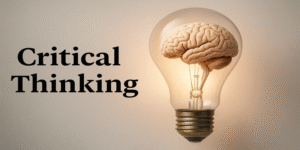“The Power of Forgiveness” explores the transformative impact forgiveness can have on individuals and communities. Forgiveness, as a concept and practice, involves letting go of feelings of resentment, anger, or vengeance towards someone who has harmed you, whether they actually deserve your forgiveness or not. It’s a personal journey that can lead to healing, release from emotional burden, and ultimately, a form of freedom.
Emotional Healing
Forgiveness can lead to profound emotional healing. Holding onto anger and resentment can be harmful to one’s emotional health, leading to negative effects such as stress, anxiety, and depression. Forgiving someone can lift these burdens, leading to improved mental health and wellbeing (Mayo Clinic, 2022). According to the American Psychological Association (APA), forgiveness can significantly reduce the symptoms of depression and anxiety by allowing individuals to let go of the emotional weight that accompanies resentment (American Psychological Association, 2021).
Additionally, a study published in the Journal of Behavioural Medicine found that individuals who practised forgiveness experienced lower levels of anger and hostility, which are closely linked to various mental health disorders (Toussaint, Shields, & Slavich, 2016). By choosing to forgive, people can unshackle themselves from the emotional turmoil that hinders their ability to experience joy and contentment.
Improved Physical Health
Research has shown that forgiveness is linked to better physical health outcomes. People who forgive are less likely to experience high blood pressure, heart disease, and other stress-related illnesses (Swartz, 2022). This is likely because forgiveness can reduce stress, a known risk factor for many chronic diseases.
A study in the American Journal of Cardiology demonstrated that individuals who practised forgiveness had significantly lower blood pressure levels compared to those who held grudges (Lawler et al., 2003). Furthermore, the act of forgiving has been associated with better immune system functioning, which can protect against a range of illnesses (Worthington & Scherer, 2004). These findings suggest that the benefits of forgiveness extend beyond mental health, promoting overall physical wellbeing.
Enhanced Relationships
Forgiveness can strengthen relationships by promoting understanding, empathy, and compassion (Mayo Clinic, 2022). It can help resolve conflicts and prevent the erosion of important relationships over time. Even in cases where the relationship does not continue, forgiveness can help individuals move on without carrying the weight of past hurts.
In a comprehensive review published in Personality and Social Psychology Review, researchers found that forgiveness is crucial for the maintenance and repair of relationships, contributing to greater relationship satisfaction and stability (Fincham, 2000). By fostering forgiveness, individuals can build stronger, more resilient connections with others, enhancing both personal and professional relationships.
Personal Growth
The process of forgiving can lead to personal growth and self-awareness. It often requires one to reflect on their own values, understand their emotions, and sometimes, acknowledge their own role in a conflict (Swartz, 2022). This introspection can be a powerful catalyst for personal development.
According to Dr. Robert Enright, a pioneer in the study of forgiveness, engaging in the forgiveness process encourages self-examination and moral growth, leading to a deeper understanding of oneself and others (Enright, 2001). This journey of self-discovery can foster greater emotional intelligence, helping individuals navigate life’s challenges with resilience and grace.
Contribution to a More Compassionate Society
On a larger scale, forgiveness can contribute to a more compassionate and understanding society. It fosters a culture of empathy, where people are more likely to work through conflicts peacefully and support each other’s healing processes (Mayo Clinic, 2022).
Research published in the Journal of Peace Psychology indicates that communities that embrace forgiveness are more likely to experience lower levels of violence and higher levels of social cohesion (Staub, Pearlman, Gubin, & Hagengimana, 2005). By promoting forgiveness, societies can move towards greater harmony and cooperation, addressing conflicts in constructive ways.
Challenges of Forgiveness
Forgiving is not always easy, especially in cases of deep hurt or betrayal. It is a process that can take time and may require support from others, such as friends, family, or professionals. Forgiveness does not mean forgetting the harm done or excusing unacceptable behaviour. Instead, it’s about finding a way to move forward without being anchored to the pain of the past.
Dr. Fred Luskin, director of the Stanford Forgiveness Project, emphasises that forgiveness is a gradual process that involves acknowledging the pain, finding meaning in the suffering, and eventually letting go of the anger (Luskin, 2002). This journey can be challenging, but the rewards of emotional and physical healing make it a worthwhile endeavour.
The power of forgiveness lies in its ability to transform lives by freeing individuals from the chains of negative emotions tied to past events. It opens the door to healing, growth, and the possibility of more meaningful and positive relationships. By embracing forgiveness, individuals can take significant steps towards leading happier, healthier, and more fulfilling lives.
References
American Psychological Association (2021) “The Road to Forgiveness”. [Online]. Available at: https://www.apa.org/topics/forgiveness-road [Accessed 3 Mar 2024].
Enright, R. D. (2001) Forgiveness Is a Choice: A Step-by-Step Process for Resolving Anger and Restoring Hope. American Psychological Association.
Fincham, F. D. (2000) “The Kiss of the Porcupines: From Attributing Responsibility to Forgiving”. Personal Relationships. 7(1), pp. 1-23.
Lawler, K. A., Younger, J. W., Piferi, R. L., Jobe, R. L., Edmondson, K. A., & Jones, W. H. (2003) “The Unique Effects of Forgiveness on Health: An Exploration of Pathways”. Journal of Behavioural Medicine. 26(4), pp. 349-363.
Luskin, F. (2002) Forgive for Good: A Proven Prescription for Health and Happiness. HarperOne.
Mayo Clinic. (2022) “Forgiveness: Letting Go of Grudges and Bitterness”. [Online]. Available at: https://www.mayoclinic.org/healthy-lifestyle/adult-health/in-depth/forgiveness/art-20047692 [Accessed 3 Mar 2024].
Staub, E., Pearlman, L. A., Gubin, A., & Hagengimana, A. (2005) “Healing, Reconciliation, Forgiving and the Prevention of Violence After Genocide or Mass Killing: An Intervention And its Experimental Evaluation in Rwanda”. Journal of Social and Clinical Psychology. 24(3), pp. 297-334.
Swartz, K. (2022) “The Healing Power of Forgiveness. Johns Hopkins Health”. [Online]. Available at: https://www.hopkinsmedicine.org/health/wellness-and-prevention/the-healing-power-of-forgiveness [Accessed 3 Mar 2024].
Toussaint, L., Shields, G. S., & Slavich, G. M. (2016) “Forgiveness, Stress, and Health: A 5-Week Dynamic Parallel Process Study”. Journal of Behavioural Medicine. 39(6), pp. 947-959.
Worthington, E. L., & Scherer, M. (2004) “Forgiveness is an Emotion-Focused Coping Strategy that can Reduce Health Risks and Promote Health Resilience: Theory, Review, and Hypotheses”. Psychology & Health. 19(3), pp. 385-405.









